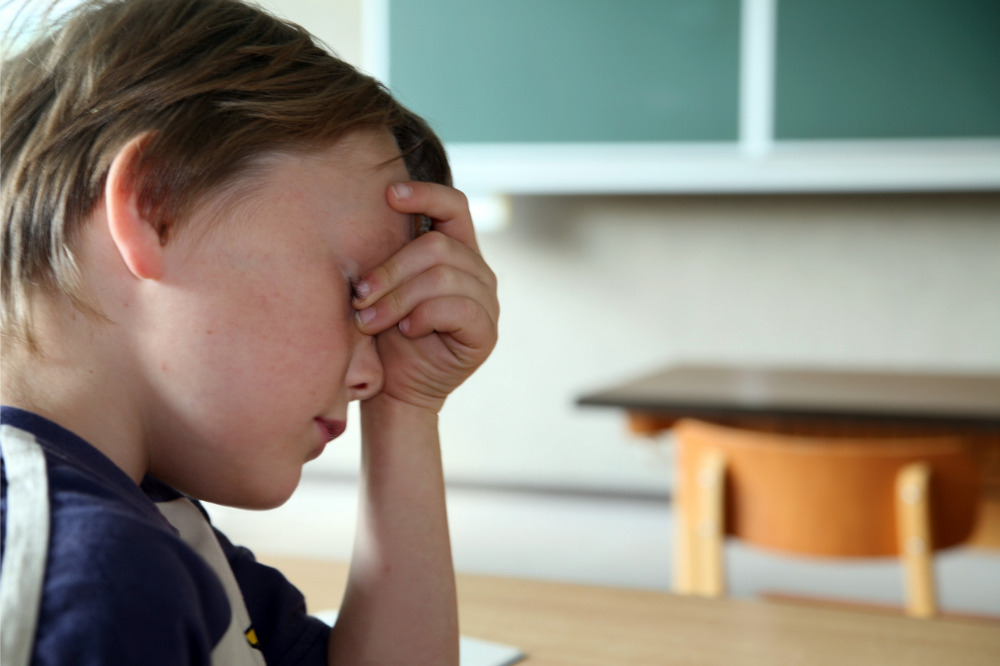
Gender diverse young people, those living in Victoria and NSW, and students were most impacted by the Covid-19 pandemic, a new nationwide study by Orygen and Mission Australia has found.
The report – Clusters of COVID-19 Impact: Identifying the impact of COVID-19 on Young Australians in 2021 – reveals the alarming impact of the once-in-a-hundred-year pandemic with data analysed from Mission Australia’s 2021 Youth Survey – an annual Australia wide survey of more than 20,000 young people aged 15-19 years.
The majority of young people reported the top three areas of their life most negatively impacted by the pandemic were participation in activities, education and mental health.
Of the more than 3,000 young people who rated their mental health and wellbeing as poor, over three quarters (76.5%) indicated the pandemic had a negative impact on their mental health.
Orygen’s Senior Research Fellow, Dr Kate Filia said the 2021 Youth Survey was an important one, with data collected during the second year of the pandemic – during the Delta wave ¬– when lockdowns were affecting young people to different extents across the country.
“Over the past two years, young people have borne the brunt of the effects of COVID-19 and have faced a multitude of unique challenges ¬– socially, financially and (with respect to this age group in particular), their education and employment,” Dr Filia said.
Young survey participants spoke of these challenges in their responses:
“COVID-19 has affected my mental health, has caused a lot of stress in regard to school work, and has stopped events from going ahead,” a gender diverse young person from Victoria said.
“Not being able to see friends during lockdowns, or when we weren’t allowed at school, was my biggest problem. I strive off of social interaction, and losing that caused me to get very upset and feel very alone,” a gender diverse 15 year-old from Queensland said.
Dr Filia explained further: “For those who reported more areas of their lives adversely impacted by COVID-19, a greater severity of psychological distress was experienced.
“We also saw this leading to increased rates of stress, loneliness and a perceived loss of control over their lives for these groups of young people.”
Potential implications for policy and practice highlighted in the report focus on the areas of mental health, education and employment, research and housing.
Mission Australia’s Executive, Practice, Evidence and Impact Marion Bennett said the partnership between Mission Australia and Orygen will support advocacy for greater supports for young people whose mental health and wellbeing have been affected by the pandemic.
“We need to increase access to mental health services, improve mental health screening and supports offered through schools and workplaces,” Bennett said.
It’s also vital we ensure that young people at risk of homelessness are identified early and have access to evidence-based housing and support models such as youth foyers when they need them. We must listen to the voices of young people so that the negative impacts of the pandemic don’t cause ongoing problems for this generation moving forward.”
Mental health organisation Smiling Mind says it is imperative that children and families have access to tools that can support their mental health and build resilience.
Greater focus on preventative strategies needed
Smiling Mind CEO, Dr Addie Wootten, says the mental health and wellbeing of Australian children and young people has been on a steady decline over the past decade, and the impact of Covid has exacerbated this.
“We know that one-in-seven primary school aged children are experiencing a mental illness, and this rises to one-in-four by the time children reach the high school years, according to the National Child Mental Health Strategy,” Dr Wootten told The Educator.
“Suicide was already at a ten-year high prior to the pandemic and recent data from the Resolve Political Monitor indicates that one-in-four young people have thought about suicide in the past year.”
Dr Wootten said the social and emotional impact of the pandemic could have far-reaching impacts and there have already been reports of this broadly impacting learning outcomes with reports of students being at least 4-5 months behind due to school closures as well as significant social and emotional impacts.
To address, this Dr Wootten says there needs to be greater funding towards preventative mental health programs, which she says will both help those most in need and be to Australia’s long term economic benefit.
“According to the Productivity Commission inquiry into mental health, poor mental health costs the Australian economy more than $220B per year, yet investment remains problematically skewed towards crisis response,” Dr Wootten explained.
“Less than 1% of government funding towards mental health programs is invested into prevention strategies. In order to stem the growing need for acute services it is paramount that investment is made into prevention.”


